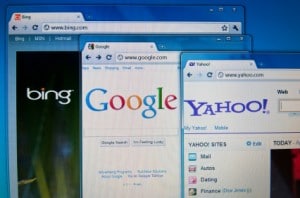 Further to my article last week about how historical characters are being shrouded in myth and the real facts are being lost, Anne Boleyn Files visitor, Jenny Brown, has just shared a very interesting BBC article with me.
Further to my article last week about how historical characters are being shrouded in myth and the real facts are being lost, Anne Boleyn Files visitor, Jenny Brown, has just shared a very interesting BBC article with me.
Entitled Is the internet re-writing history?, this article looks at the impact of online propaganda and conspiracy theories on websites and in YouTube videos. In a workshop carried out in a high school in Tower Hamlets, London, pupils were asked to rate various sources of information – their family, the Guardian Newspaper, Twitter, YouTube, the government etc. – according to how much they trusted them, ranking them on a line between “Trust” and “Distrust”. Who can blame these kids for putting the government near to “Distrust”? But they also put YouTube near “Trust”! Oh dear!
The workshop then went on to discuss online videos, asking the pupils what videos they had watched, and every single one of them had seen videos on 9/11 and the death of Osama Bin Laden, spouting conspiracy theories. At another school, pupils discussed what sources they use and trust when looking for information, citing Wikipedia and Google. Although many of them knew that they couldn’t simply take Wikipedia at face value, and should double check the facts, one pupil spoke of how she trusted Google for homework:-
“I just believed the first answer that came up, to be honest. I know I shouldn’t do it, but Google’s like a trusted website; it’s a lot of people’s home page and you just automatically put trust in it.”
The report by thinktank, Demos, entitled “Truth, lies and the internet: A report into young people’s digital fluency”, concludes that young people do not verify the sources of information, do not understand how internet search engines work and were not good at differentiating between propaganda and fact. Demos believe that young people should be taught “digital judgement” as part of the core curriculum and that:-
“teaching young people critical thinking and skepticism online must be at the heart of learning. Censorship of the internet is neither necessary nor desirable; the task instead is to ensure that young people can make careful, skeptical and savvy judgments about the internet content they encounter. This would allow them to better identify outright lies, scams, hoaxes, selective half-truths, and mistakes, and better navigate the murkier waters of argument and opinion.”
The internet is part of our daily lives and is a valuable resource but children need to be taught how to use it. My children often come home from school with a project to do and it seems that their teachers are encouraging them to almost copy and paste from wikipedia, rather than to go to a number of sources and double check the facts. Education really needs to go back to nurturing the questioning nature of children, encouraging them to think for themselves and to challenge what they read don’t you think? See, I’m on my Friday soap box!!
Notes and Sources
- Is the internet re-writing history?, BBC article
- Truth, Lies and the Internet: A report into young people’s digital fluency